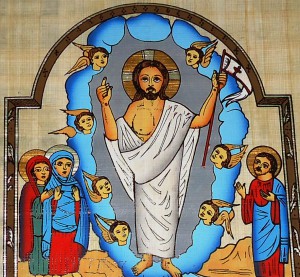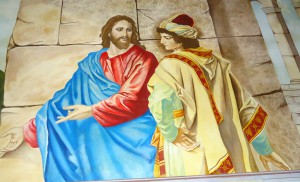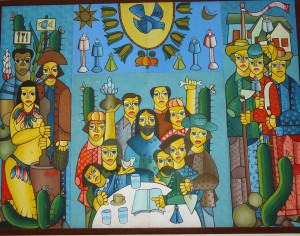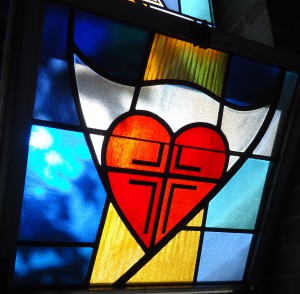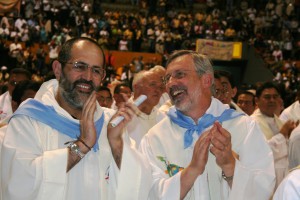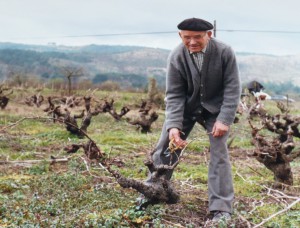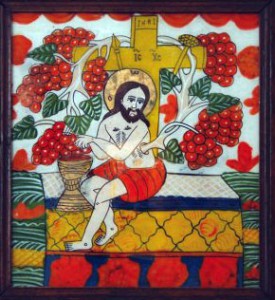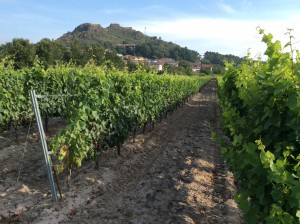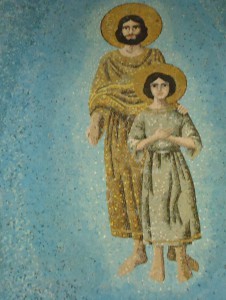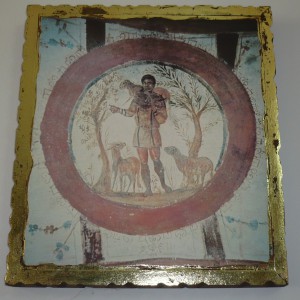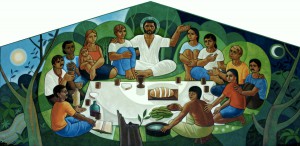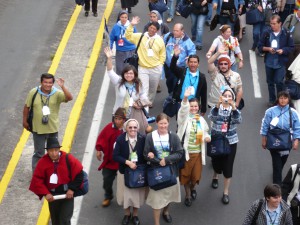A commentary on Mk 16, 15-20: Ascension Day, May 17th 2015
This time the liturgy “jumps” from the Gospel of John, which we have been readings in the last Sundays, to the last chapter of Mark. We actually read the five last verses, where it’s shown to us how Jesus passed the “mission baton” to the community of disciples, the Church that is now continuing His mission in the world; Let us see briefly each of these five verses:
1.- “Go into the world and preach the gospel to the whole creation”
It cannot said more clearly. Jesus’ friends and disciples understood quite soon three things: a) that the experience of friendship and discipleship they had with Jesus was a kind of a “precious pearl”, that it was the most important thing that ever had happened in their lives; b) that in spite of His death – or rather in and through His death- Jesus was not a looser but a winner –not by way of arrogance but way of love- and that He is now living with the Father – and, consequently, continuously present in each and every historical time-; c) that this marvellous news could not remain hidden, but it should be spread to all the corners of the Earth. To proclaim this “Good News”, this “gospel”, is a mandate, not to impose on others an ideology or a set of rites, but to share with all the enormous gift received.
2.- “He who believes and is baptized will be saved”
The disciples understand that the mercy of God has been revealed to them and to all the human beings in the person of Jesus Christ. To receive that mercy, they do not have to be “the best ones”; they only have to believe, that is, not to close themselves up in their own arrogance and hypocrisy, but to open themselves and accept the free Love that is offered to them. The Baptism is the meaningful sign of that “conversion”, of that acknowledgement of our sins and of our purification an liberation by the powerful love of the One, “who did not count equality with God a thing to be grasped, but emptied himself, being born in the likeness of men”.
3.- “They will lay their hands on the sick, and they will recover”
Sometimes, it seems that doing mission consists in preaching. And, certainly, words are quite important; they allow us to illuminate our way, to enter into relationships with others and with God… But the Christian Message is much more than just words. It us action, education, health, freedom… It acts in the concrete lives of people. It’s interesting to note how from the beginning Mission has gone together with solidarity (hospitals, schools, homes for elderly and children…). This actions are not means to gain the sympathy of people; they are “messianic signs”, actions similar to those Jesus used to do in Galilee, concrete actions that show the concrete love and care of the Father for each person in need and distress. For the western world, quite often, healing is reduced to “physical healing”, but the healing the disciples experience is much more: it goes to the deepest root of the person, with evident positive effects in all its dimensions: physical, psychological, social and others. There’s no doubt, The Gospel, when it’s announced and received in sincerity, carries in itself a powerful healing and liberating force.
4. “He was taken into the heaven and sat down at the right hand of God”
Certainly, the words used in this sentence –taken into heaven, Sat down, right hand- are part of a symbolic language that tries to transmit an important truth with various dimensions, one of which can be expressed in the following terms: Jesus, being now “in heaven” (beyond the Earth), has overcome the limitations proper to a Galilean born in the first Century; now He is sharing the same age and condition than all of us, from every culture and human condition. In his new condition, Jesus cannot longer be manipulated (“Do not touch me”, He said to the Magdalene), but He is near to each one in whatever condition we are: man or woman, black or white, more or less sinner, left -wing or right-wing… We all can be in communion with the One who is now “sitting at the right hand of God”, in every historical epoch and in every human condition.
5.- “They went forth and preached everywhere, while the worked with them”
The disciples did not remain passive in Jerusalem, lost in a nostalgic attachment to the past. They took responsibility for the Gospel in the world and put themselves on the way, sure that the Lord was with them, even if in a different manner. This is the Church, the community of disciples that takes upon itself the responsibility to share the gospel to the last corner of the Earth. Each one of us is a part of this Church and has a part in its mission. The mission that Jesus entrusted to us for the life of millions.
Fr. Antonio Villarino
Roma





